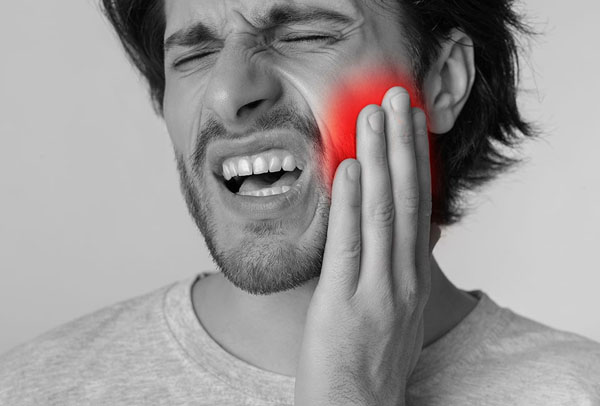Dental Trauma Emergencies
Handling Dental Trauma Before Visiting a Dentist
Accidents happen, and dental emergencies can occur unexpectedly, causing pain and distress. Knowing how to handle dental trauma promptly and appropriately can make a significant difference in preventing further complications.
If you’ve experienced traumatic dental injuries, don’t fret. Dr. Niral Patel is one of the best dentists in Knoxville for emergency dentistry, but it’s wise to be prepared for a situation before being able to see a dentist.
What Is Dental Trauma?
Dental trauma refers to injuries that affect the teeth, gums, lips, tongue, or surrounding tissues due to various causes such as accidents, sports-related incidents, or falls. These injuries can vary in severity, ranging from mild chipping to complete tooth avulsion.
Recognizing Dental Injury Signs and Symptoms
The first step in providing aid for dental injuries is recognizing them. Here are some common signs and symptoms of dental trauma:
- Pain or Discomfort: This could range from mild sensitivity to intense pain, particularly when chewing or exposed to hot or cold temperatures.
- Visible Damage: This includes chips, fractures, or complete displacement of the tooth.
- Bleeding: Injuries to the gums, lips, or other soft tissues may lead to bleeding.
- Swelling: Inflammation of the affected area, including the gums, lips, or cheeks, may occur.
- Loose or Misaligned Teeth: A tooth might feel loose in its socket, or it may appear to be pushed to the side, out of its normal alignment.
- Changes in Bite: If the teeth are not aligned properly due to trauma, it can affect the way the teeth come together, possibly causing discomfort or difficulty chewing.
- Numbness: Sometimes trauma can affect nerves, leading to numbness or altered sensation in the affected area.
- Discoloration: A tooth that has suffered trauma may change color. It might appear gray or dark yellow, indicating potential damage to the internal blood vessels or nerves.
- Difficulty Opening or Closing the Mouth: This could indicate more serious injuries, possibly involving the jaw.
- Gum or Soft Tissue Lacerations: Cuts or tears in the gums, lips, or cheeks might be present.
- Pulp Exposure: If a tooth is fractured significantly, the pulp (the innermost part of the tooth) might be exposed, often appearing as a red or pink spot in the center of the tooth.
- Abscess or Infection: If untreated, dental trauma may lead to an abscess or infection, presenting with swelling, pain, pus discharge, or even fever.
- Emotional Distress: Especially in children, dental trauma can be a frightening experience, leading to anxiety or emotional distress.
Immediate Actions for Dental Trauma
When faced with dental trauma, acting quickly can make a substantial difference in preserving the affected teeth and tissues.
Stay Calm and Reassured
When faced with a dental injury, the first and most crucial step is to stay calm and reassure the injured person. Dental emergencies can be distressing, but maintaining a composed demeanor will help keep the situation under control and reduce anxiety.
Control Bleeding
If there’s any bleeding from the injured area, it’s essential to control the bleeding promptly. Apply pressure with a clean cloth or gauze to the affected area to staunch the bleeding. This will help manage the injury and make it easier to assess the extent of the damage.
Recover Tooth Fragments
In the case of a broken tooth, try to locate and collect any tooth fragments. These fragments may be valuable for potential reattachment by a dentist. Handle them carefully and keep them in a moist environment, such as a tooth preservation kit, milk, or saline solution.
Handle Avulsed Tooth Carefully
If a tooth is completely knocked out (avulsed), it’s essential to handle the tooth with care. Hold the tooth by its crown (the top part) and avoid touching the root. Touching the root can damage the delicate tissues that are crucial for reattachment.
Rinse With Saline Solution
If the avulsed tooth is dirty, it’s essential to rinse it briefly with a saline solution or milk. Avoid using water, as it can harm the root surface cells. Gently rinse the tooth without scrubbing to maintain its viability for potential reimplantation.
Contact Dr. Niral Patel
After taking immediate action for dental injuries, seek professional dental care from Fountain City Smiles as soon as possible. Dental emergencies require prompt evaluation and treatment by an emergency dentist or a dental trauma specialist. Contact your dental clinic or visit the nearest emergency dental facility for appropriate care. Remember, swift action can make a significant difference in preserving teeth and tissues during dental emergencies.
Dental First Aid Kit Essentials
Having a well-equipped dental first aid kit at home or while traveling can prove invaluable during dental emergencies. Here are some essential items to include in your kit:
- Gauze or Clean Cloth
- Saline Solution
- Pain Relievers (Ibuprofen)
- Cold Compress
- Cotton Swabs
- Dental Floss
How to Manage Dental Pain
Dental injuries can cause significant pain and discomfort. Managing dental pain effectively may include:
- Over-the-Counter Pain Relievers: Use pain relievers like ibuprofen or acetaminophen as directed.
- Cold Compresses: Apply a cold compress to the affected area to reduce swelling and alleviate pain.
- Avoid Hot and Cold Foods: Temporarily avoid consuming extremely hot or cold foods and beverages.
- Soft Diet: Stick to a soft diet that doesn’t require excessive chewing.
- Avoid Pressure: Refrain from putting pressure on the injured tooth or surrounding area.
Dental Trauma Treatment Options
For those who have experienced dental trauma, seek professional care as soon as possible. Don’t wait to seek care and let your injured teeth cause other complications. Various dental trauma treatments can get your oral health back on track.
Chipped or Fractured Teeth
- Minor tooth fractures can be smoothed by a dentist, or filled with a tooth-colored resin material.
- More severe fractures might require a crown or, in cases where the pulp is exposed, root canal therapy.
Dislodged (Luxated) Teeth
- The tooth may be repositioned and stabilized by a dentist.
- Root canal therapy might be required, and this is generally started a few weeks after the injury.
Knocked-Out (Avulsed) Teeth
- Seek emergency dental care as quickly as possible.
- The dentist might reposition and stabilize the tooth, and root canal treatment may be required.
Root Fractures
- Treatment will vary depending on the location and extent of the fracture.
- Stabilization and a splint may be required, and the tooth will be monitored for healing.
Soft Tissue Injuries
- Clean the wound with mild soap and warm water.
- Visit a dentist or oral surgeon who may suture the wound if necessary.
Injury to the Jaw
- A potential broken or dislocated jaw requires immediate medical attention.
- Treatment may include bandages, wires, or surgery, depending on the severity of the injury.
Pulpal (Nerve) Injuries
- Depending on the type and extent of the dental injury, treatment may include monitoring, root canal therapy, or other types of pulp care.
Frequently Asked Questions
How long do I have to save a knocked-out tooth?
In most cases, you have the best chance of saving a lost tooth if you act promptly within the first hour of the injury. Time is critical in preserving the tooth’s viability for reattachment. If an avulsed tooth is left out of the mouth for an extended period, the chances of successful reimplantation decrease significantly.
Can I use glue to fix a broken tooth?
No, using glue or any household adhesive to fix a broken tooth isn’t recommended. Household adhesives are not designed for dental use and may contain harmful chemicals. Instead, if you experience a broken tooth, try to collect any tooth fragments and store them in a moist environment like milk or saline solution.
What should I do if my child knocks out a baby tooth?
If your child knocks out a baby tooth prematurely, don’t attempt to reinsert it. This is normal and usually not an emergency. Baby teeth naturally fall out to make way for permanent teeth. Have your child checked by a dentist to ensure no further damage has occurred to primary teeth and to ensure proper oral health during the transition to permanent teeth.
Can I wait until my regular dentist’s office hours for a dental injury?
For dental injuries, it’s best to seek immediate care. Dental emergencies can be painful and may lead to further complications if left untreated. Waiting until regular office hours may delay treatment, causing the condition to worsen. In case of a dental emergency, contact an emergency dentist or visit the nearest dental clinic for prompt evaluation and treatment.
Seek Treatment After Experiencing Dental Trauma
Handling dental trauma effectively requires swift action, preparation, and professional help. By being aware of the necessary first aid measures and seeking timely dental care, you can minimize the impact of dental injuries and improve the chances of successful recovery.
During times of emergencies and dental trauma, Fountain City Smiles is here for you. Dr. Niral Patel welcomes you to call our Knoxville dental office right away at (865) 687-8670 so we can help get you the prompt dental care you need.


